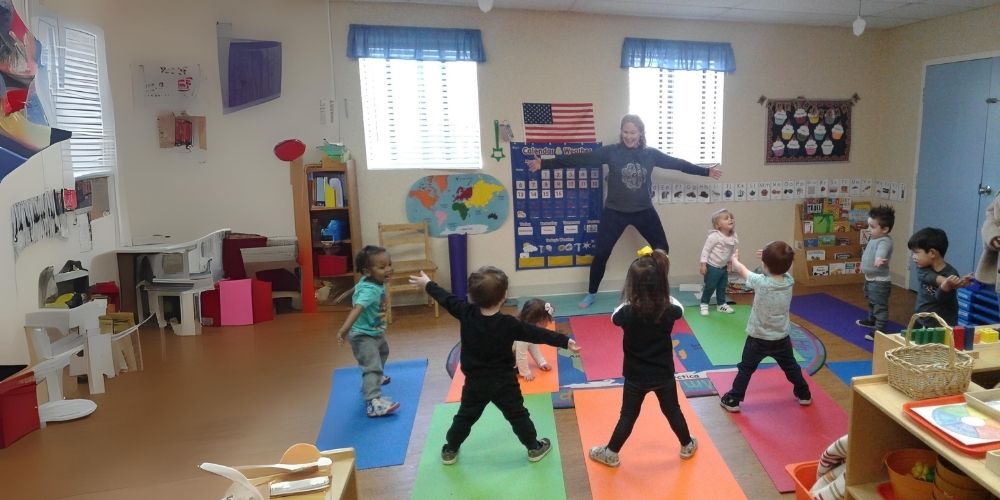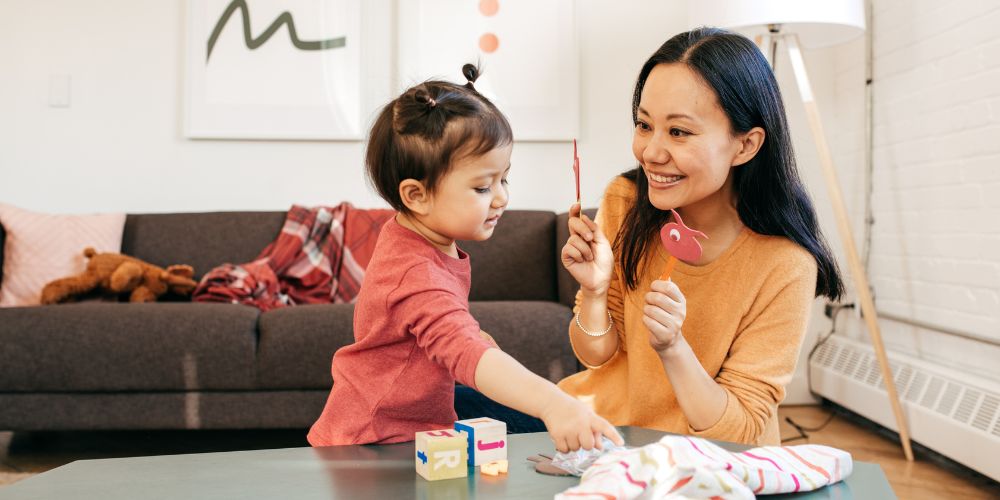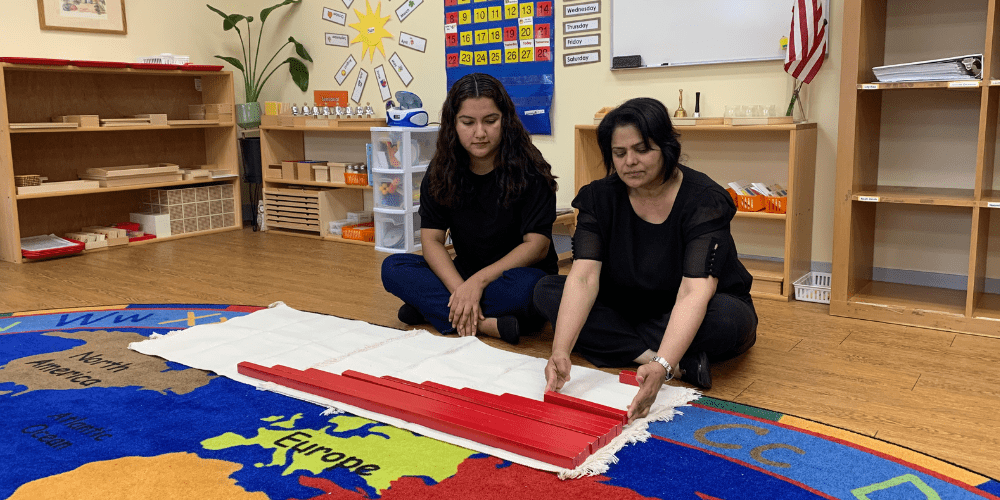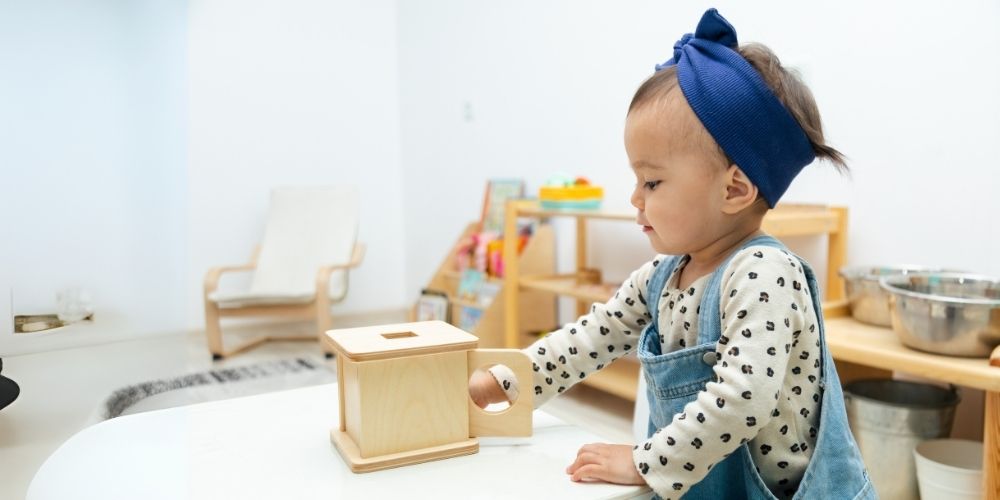We are on a mission to make the Montessori approach to life and learning more accessible and straightforward – and remove any misconceptions that may prevent families from exploring and embracing Montessori. Keep reading to learn about 5 common misconceptions about Montessori Education. You can also check out the recording from our Montessori Monday parent information session on this topic, or explore our handout for a summary.
Families have a pivotal role to play in their child’s Montessori journey!
Embracing Montessori education is an ongoing journey that requires patience and a willingness to adapt to your child’s unique needs as they grow and develop year after year. By connecting with your child’s learning journey and being intentional about encouraging practical independence and hands-on exploration in ways that align with your child’s natural curiosity and developmental stage, you can foster a sense of community and further nurture their growing love of learning!
The Montessori way of learning lasts for years beyond a student’s time in our classrooms as they develop and master crucial life skills such as:
- learning how to work both independently and in collaboration with peers of various ages
- how to ask for help when confused or stuck
- how to problem solve and persevere in challenging situations
- how to extend grace and compassion to others
- …and so much more!
Students take these skills with them into future learning environments and beyond into their life as an adult in our wider community.
Misconception #1: I must have all wooden toys and activities in order to have a Montessori environment in my home
Montessori education is more about how the child experiences their world than it is about specialized equipment and materials.
While some specialized Montessori materials can be costly, the core principles of the method can certainly be implemented at home using readily available household items and creative approaches, making it accessible to families on a variety of budgets and time constraints. It is important to consider the difference between real-life & practical items vs. toys/play-themed items. There are many Montessori items that you can DYI & be on the lookout for second-hand items.
It’s important to remember it is not all or nothing, You can adapt a Montessori approach to any or all aspects of your parenting journey – potty training, eating, chores, discipline, decorating/environment, …whatever is the best fit for your family! Just like Montessori learning is individualized to each child, the Montessori approach is individualized to each family. The key is to making your child feel capable in order to empower them, this is a great way to not only keep your child happy, but eeting their needs, giving them skills, and it contributes to an environment where everyone is pitching in within the family & community.
Misconception #2: I can never be stern or raise my voice with my child as Montessori lets the child do whatever they want.
A Montessori environment and Montessori parenting do not mean the child is free to do whatever they want without limits. In a Montessori environment, students are free to move about and are empowered to choose what they would like to explore.
This freedom to make decisions is still within clear boundaries that have been established as a collective classroom community. Making decisions helps to create a strong sense of self-discipline. Ongoing observation is always happening as teachers move around the classroom, so that redirection and/or direct intervention can happen promptly as needed.
As parents and teachers, we must guide the child by example which is why Grace and Courtesy demonstrations are also regularly incorporated into lessons, activities, and daily interactions so that students practice taking turns, working together collaboratively, helping one another, and developing self-discipline.
Care for self and care for others are two key components of the Montessori philosophy. When it comes to care for self, safeguarding the wellbeing of a child is always in the forefront and there are times we must set boundaries to keep a child safe. For example, “I understand you are feeling frustrated right now. It can be hard to have to wait for a turn. It’s ok to feel upset in this moment but it isn’t ok to throw your body to the ground because you might hurt yourself or hurt someone else.”
Misconception #3: I must be totally hands off and let my child figure out/learn everything on their own
While we do want children to explore and be independent, an adult’s role is to actively guide a child’s learning process. Whether in the classroom or a home setting, the adult is still very present and active! This is important for both safety and to ensure a well-rounded education for each student.
Our trained Montessori teachers work with the children to ensure that essential skills and knowledge are learned while also encouraging them to pursue their interests deeply, leading to a more profound and lasting form of learning that departs from traditional rote memorization. Montessori educators conduct detailed observations and qualitative assessments that provide a more holistic view of a child’s development, focusing on growth over competition. This method fosters a love for learning itself, not for the reward of high grades.
We focus is on making sure that each student fully understands a topic or skill before moving on to the next one, rather than moving all students along at the same pace regardless of their individual levels of understanding.
Misconception #4: Montessori is snobby and/or elitist
The Montessori approach was initially developed to work with students with special needs, and has been adapted and implemented world-wide in many school settings, servicing communities from a wide variety of socioeconomic backgrounds, such as:
- Public Schools (over 600 publicly funded Montessori schools in the US)
- Charter Schools
- Private Schools
- Homeschool Environments
- Nature Schools
Many private Montessori Schools offer scholarships and accept vouchers (including CMMS!) Some states (including Maryland) offer childcare credits and assistance to low-income families, making Montessori Education accessible to a lot of families.
Misconception #5: Montessori-educated students are not well prepared to transition to traditional school settings
Montessori focuses on the development of the whole child while also promoting academic learning, leading to adaptable and resilient learners! Montessori education prioritizes deep understanding and mastery of concepts, and critical thinking skills.
By fostering independence, problem solving, and social skills, students are well prepared to think critically, analyze information, and apply that knowledge in any number of future educational settings, as well as in the wider world as they grow to adulthood. Montessori learners are used to adapting and problem solving, and know how to request assistance when needed.
We want to ensure our students are meeting benchmarks and developmental norms, so beginning in Kindergarten our students begin taking a computer-based assessment that is usually given twice a year (in addition to the ongoing assessments and evaluations conducted regularly by their teacher).
For Elementary students, teachers also spend some time giving lessons on the skills and vocabulary that their students need to know to successfully navigate a standardized test.
For more information about how Children’s Manor & Magnet Montessori Schools can impact your child’s education and future, you can learn more about CMMS & schedule a tour or visit us at an upcoming open house.





